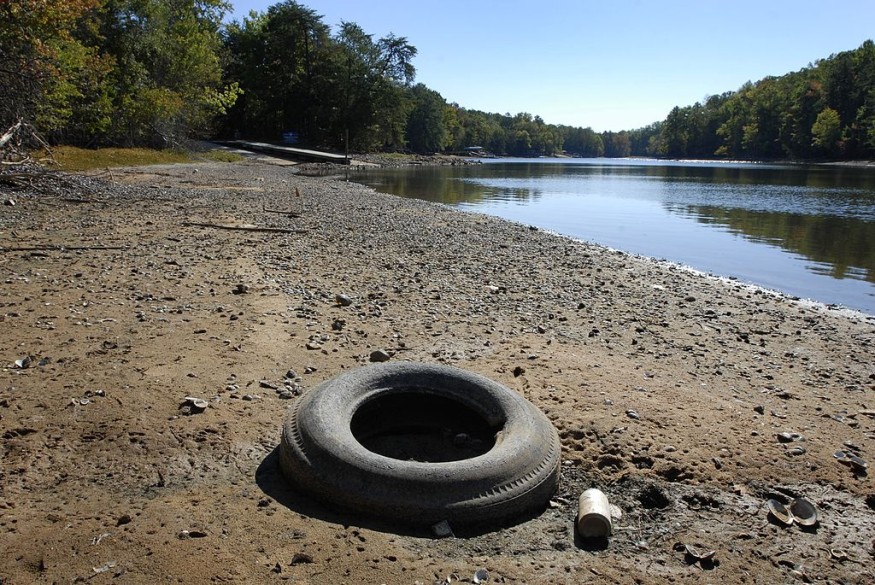Research demonstrating that catastrophic weather occurrences were made more probable by climate change is described by scientists as "quite frightening."

Global Weirding
According to a recent study via The Guardian, the climate crisis has made some of the world's most catastrophic weather occurrences far more probable.
These events include record heat in China, excessive rainfall in the UK, and California's unrelenting drought.
The examiner reported that many extreme occurrences that occurred in 2021 and 2022 were made worse by global warming and, in some instances, would have been almost unthinkable given how severe they were if people hadn't changed the climate by burning fossil fuels.
A Worrying Situation
According to Stephanie Herring, a climate scientist at the US National Oceanic and Atmospheric Administration, "the severe magnitude of these occurrences is worrying" (Noaa).
"We must determine if these incidents indicate that things are heating up more quickly than anticipated. We anticipate that the severity of high heat will increase, and further study will enable us to predict future changes more accurately."
All around the world, the fingerprint of climate change is being found. Contrarily, the extreme rainfall that inundated parts of the UK in May 2021 was 1.5 times more likely as a result of global warming, while the risk of severe drought that affected California and Nevada from October 2020 to September 2021 was made six times worse by the climate crisis and a strong periodic La Niña climate event.
Due to human-caused climate change, a severe heat wave in China in February 2021 was made between four and twenty times more probable.
The acute drought Iran suffered in 2021 is now 50% more likely due to the greenhouse gases humans have pumped into the sky.
A wide range of other severe effects can be partly or fully attributed to the climate crisis, such as the persistent cloud cover over the Tibetan plateau that inhibited vegetation growth and the weather that made a dangerous wildfire in Cape Town, South Africa, in 2021 90% more likely than it would have been otherwise.
These effects result from increased global temperatures, abnormal winds, and localized pollution.
The compilation of studies, which NOAA presented at a meeting on Monday, gathers some of the most recent climate attribution instances.
Researchers could identify the precise role that human-induced climate change had in certain weather occurrences and catastrophes.
According to Herring, the message has "developed over time as the evidence has expanded" into more precise attribution techniques.
Previously, scientists were highly reticent to discuss the effect of climate change on individual occurrences, preferring a broader probabilistic framework.
Scientists can now offer a more accurate and timely evaluation of the impact of the climate problem on specific catastrophes using ever-more-powerful climate models and historical evidence.
One research revealed that the climate crisis increased the likelihood of heavy rain by roughly 80 times, which led to deadly floods in Nigeria, Niger, and Chad last year.
Issuing a Dire Warning
Herring issued a dire warning, claiming that many of the temperatures being seen are beyond any recent historical averages and are driving humanity into a dangerous new condition.
For instance, a heatwave in South Korea in October 2021 was so extreme that it would be thought to occur once every 6,250 years, with temperatures about 7F higher than average.
However, if planet-heating emissions are not drastically reduced, the climate models indicate that by 2060, this will become the new normal for South Korea.
Take Warning
The US Pacific Northwest, with typically mild temperatures, may suffer the same fate as in 2021 when a scorching heatwave claimed 600 lives.
Later analysis showed that the heatwave was 43 times more probable due to the climate problem.
According to Paul Higgins, associate executive director of the American Meteorological Society, the Earth's system is being severely disrupted by human-caused climate change.
As this latest study demonstrated, we should anticipate it to result in more severe incidents.
Despite this risk, we must do all we can to ensure that humans and all other forms of life prosper.
Related Article: Novel Technology May Help Combat Climate Crisis
For similar news, don't forget to follow Nature World News!
© 2026 NatureWorldNews.com All rights reserved. Do not reproduce without permission.





